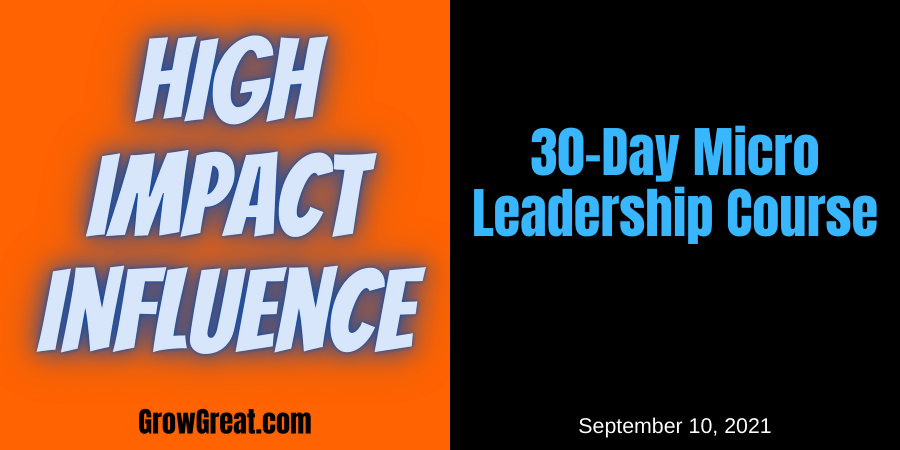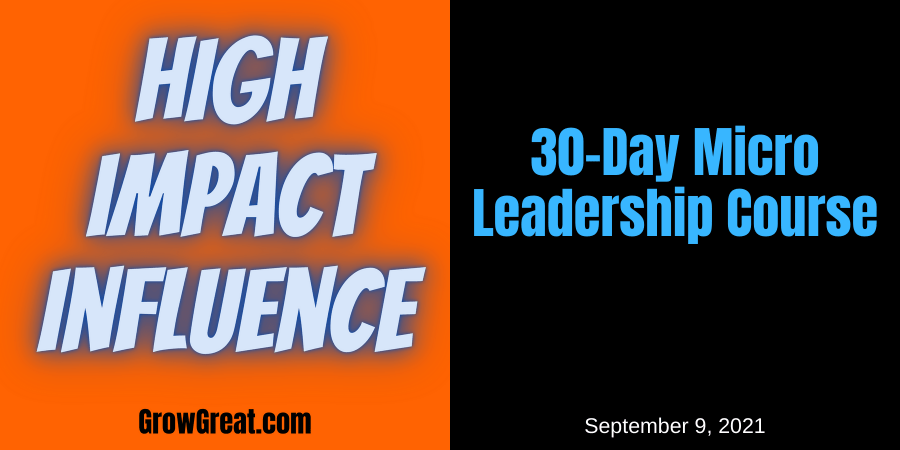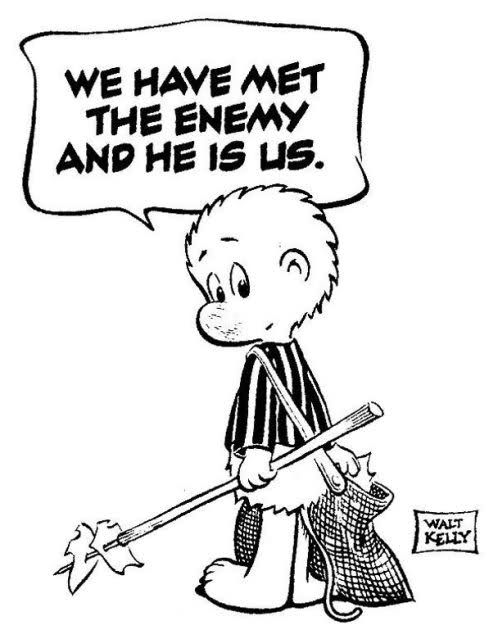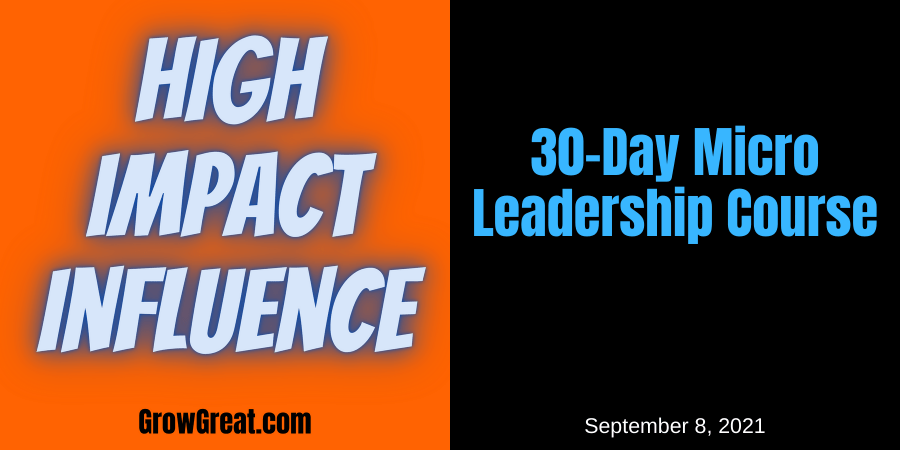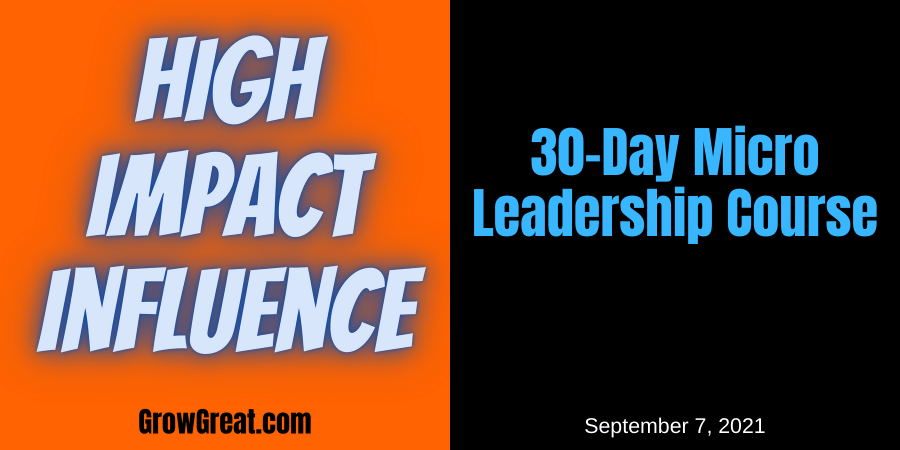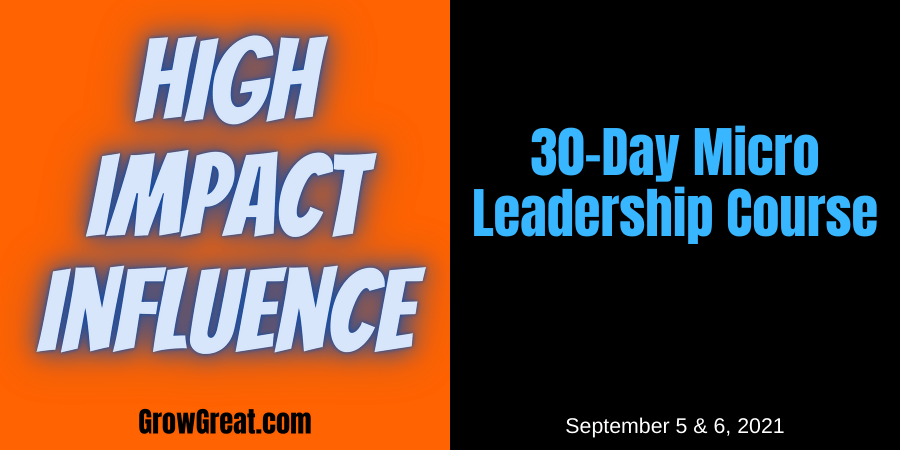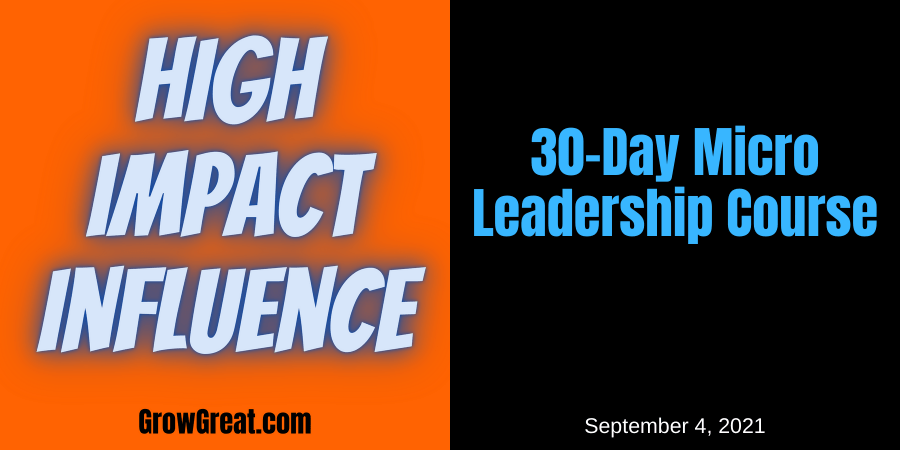30-Day Micro Leadership Course (September 10th 2021)
Podcast: Play in new window | Download (Duration: 11:30 — 10.5MB)
Subscribe: Apple Podcasts | Spotify | RSS | More
Day 10. After today we’re one-third of the way through this micro leadership course. I hope you’ve been ruminating on your leadership and working to figure out how to improve.
Today, let’s talk about decluttering, consuming, and creating.
Decluttering is ridiculously powerful. Hard, but powerful. No, I’m not talking about going through your office and pitching all those outdated papers and other crap you never use. I’m talking about decluttering your mind and viewpoint. That’s much harder than cleaning your office. But it’s more impactful, too.
Test your assumptions. Prove what you know to be true.
Spend some time taking a close look at the things you believe to be true. Even things you KNOW are true. Or think you do.
It’s time to test your thoughts, notions, opinions, beliefs and philosophies to see if they’ll hold up. I’m challenging you to enter this work with a mind made up that you’ll ditch the things that aren’t so and the things that just don’t work.
How many leadership books have you read?
How many articles, blog posts, and podcasts have you consumed?
What lessons did mentors or others pass on to you?
What positive and negative experiences have you had as a leader?
These and many other factors have helped develop how you view leadership – particularly your own leadership. All the good, bad and ugly have a compounding effect on your life and your leadership making decluttering feel impossible. But it’s not. If you put in the right kind of work.

I regularly use this illustration to show clients the power of not being able to see something…but once you do, you’re not able to unsee it. It simply can’t be ignored. That’s how your leadership insights will be if you put in the work.
There are some things you easily see. Other things you find seemingly impossible to see. Until you do. Then they leap out to you plain as day!
Before moving on to consumption and creation – sessions 11 and 12 – we have to concentrate on decluttering your thinking. This is why I focused earlier on possibility thinking. So many of us are stuck because we just don’t believe. “That’ll never work,” is how some choose to live. Denying that growth, improvement, and higher performance are even possible. Or that it’s just not worth the effort.
Stuck. It’s the number one culprit of my client work. People are stuck. Most know it. Some don’t. Typically, we see things the way we see them and we’re unable to see them differently. We see the old woman or the young woman, but not the other one. That inability to see differently sticks us.
In every instance, decluttering ideas, philosophies, and beliefs is required. Some people refer to it as “back to basics.” Whatever you call it, it’s clearing away enough distractions so we can see more clearly. It’s opening ourselves up to the possibilities of what we can do to move ourselves and our team, group or enterprise forward. It’s always about moving forward, growth and improvement.
So how do you do this decluttering?
- Don’t fixate on the problems as problems. This is the hardest thing to do. We can easily focus on our problems and become consumed with what’s wrong. Solutions aren’t born from obsessing about the problem, but from fixating on the solutions. Shift the gears of your mind to think about just one thing, the ideal outcome. Your ideal outcome! What do you want to happen? What can you do to make that happen?
- Lower your pride because that is what’s in your way. When we’re stuck we’re tempted to blame others. Don’t. Be humble enough to find your deepest courage. The courage to not care what others think. I mean, you’re stuck, so who cares? Get unstuck, then you figure out what others think — and decide if you care. Jettison that stuff right now because it’s clogging the works to your forward progress. Find a whole new level of humility. Ask for help. Seek help. Accept help. Nothing will propel you forward faster than realizing others can help you. Find people you can trust. And be vulnerable, open, and honest. If you thought step 1 was the hardest, this one is right there with it. But it’s what heroes do!
- Be brave enough to consider alternatives to how you’ve been operating. You can make up your own mind, but only if you have an open mind. Be thoughtful and mindful to consider perspectives you may have not known or considered. Ask yourself, “What if I’ve got this wrong?” Give yourself permission to be wrong. That’s how you can become more right.
Tomorrow we’ll talk about your consumption, then on Sunday, we’ll discuss creating.
Be well. Do good. Grow great!
30-Day Micro Leadership Course (September 10th 2021) Read More »
